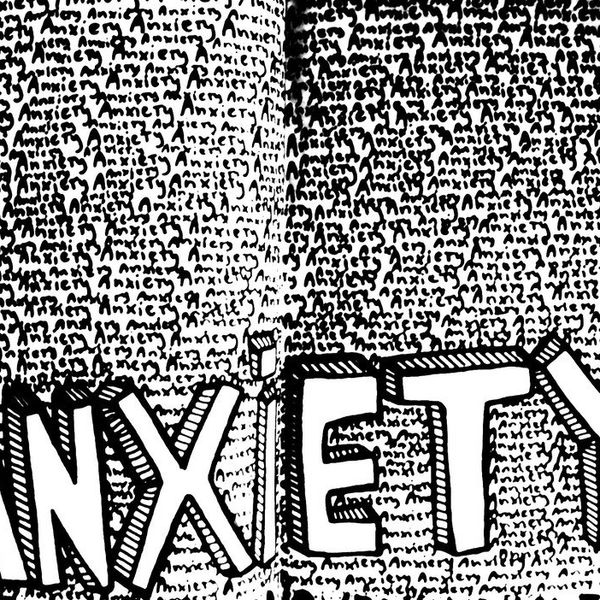I remember the day I was diagnosed very strongly. I remember sitting in that hospital bed, with tears in my eyes as the doctor tried to explain what was going on. I remember thinking that he had to be wrong, it wasn’t a stress thing, it wasn’t an anxiety thing; this was real. Anxiety can’t make you pass out and have seizures. Stress can’t make your muscles spasm, your vision go away, or take away the function of your legs.
But it can.
I’ve always suffered from depression and anxiety. I started having panic attacks at 13. My mom always told me not to let it rule my life; that my anxiety doesn’t define who I am. That’s a little hard to live by when you literally are afraid to sit behind the wheel of a car or be left alone.
In January 2014, I began passing out. I would get a headache, and get dizzy or nauseous, and then I would pass out for a considerable amount of time. I would even have seizures that even paramedics thought were full blown gran-mal seizures. Sometimes, I had neurological symptoms that scared everyone involved, such as, color inversion, memory loss, inability to speak, and temporary vision loss. I had no former history of epilepsy or syncope (the fancy term for losing consciousness). There was no head trauma I had recently suffered, so that couldn’t be it. I was a mystery. By the time I would get seen by a doctor in the ER, I would be alert and cognizant, so they didn’t believe me. I would receive a dose of Ativan and be sent home.
It took four months to diagnose me. At that point, I had been to the ER more times than I could count. I’d seen a psychiatrist, a therapist, a neurologist, and a primary care physician. My arms looked like a training ground for unskilled nurses. I’d had EKGs, MRIs, CAT scans, contrast CTs, heart function studies, and EEGs all done on my body. I had been in the hospital beds more than my own. Nurses, ER doctors, and EMTs all began to know me by name.
Finally, in April 2014, a neurologist in Springfield, Missouri saw me and understood what needed to be done. A short EEG couldn’t for sure test what was happening with my brain; it needed to be a week-long study. So, sure enough, my mom and I packed up and went to the hospital for a week. I had an EEG before so I knew I would look like a creature from the Matrix, with wires everywhere. What I had forgotten is that they stick the electrodes to your head with this gross stuff that makes you wish you could shave your head instead of fighting to get it out.
There I sat. For a week, I had wires sticking out of my head, heart monitors, and a video camera on me 24/7. Of course, still being enrolled in school, I had homework I was doing, I caught up on Netflix, and of course I had my mom. But being in a bed for 24/7 with limited range of motion was definitely not ideal. Since I was spending most of my time in bed, they had to wake me up at 5am every morning (Why 5am? No idea but it was awful.) to get a shot of blood thinners into my stomach so that I wouldn’t develop leg clots. I had an IV being ripped out constantly, because I would forget about it while I was attempting to sleep.
Every time I thought I was going to pass out, I had to hit the call button for the nurse, and a button that marked it on the video feed, which is a lot to remember when you’re getting ready to pass out. I would pass out, do my thing, and wake up to five nurses, orderlies, my mom, and everyone else in the hospital around me. Since I was having seizures, they would pump me full of Ativan every time I passed out. Ativan is not my favorite drug in the world. It makes me cry and sleep for hours on end, which, I guess, is better than passing out at least once every two hours.
At the end of the week, the neurologist came into my room, along with a psychologist and told me what my diagnosis was: Conversion Disorder. Conversion Disorder is, as described by The Mayo Clinic, is “a condition in which you show psychological stress in physical ways. The condition was so named to describe a health problem that starts as a mental or emotional crisis — a scary or stressful incident of some kind — and converts to a physical problem.” The simple way to describe it is this: When you stand in front of a crowd to make a speech, let’s say your hands get sweaty, your knees get weak, your mouth gets dry, and you can’t remember what you’re supposed to say. Your brain is making your body physically react to what your brain is feeling. My brain does this in every situation that it feels stressed, except mine is to the extreme. Basically, my brain was tricking me into being sick.
The doctors assured me that in no way was I to believe that I was causing this to happen, they didn’t think I was faking it, or anything like that. However, it was hard to believe that. I didn’t know anyone else whose brain caused them to pass out and have seizures. I spiraled down into a pretty deep depression, to be honest. It was hard to realize that your illness wasn’t “real” but instead was caused by your brain.
They told me I was good to go home and resume my life as it was before. I’d have some follow up exams and I would be started on some different anti-depressant and anti-anxiety medication. Other than that, I was fine. But was I? I was scared to go home; scared to go back to school. I was absolutely terrified to try and resume my life as normal.
But I did.
I returned to school. I drove again (with supervision). I started living again. I still have episodes, even two and half years later. For most people after they are diagnosed, their symptoms die down. Mine didn’t. I still deal with passing out and seizing in my everyday life. However, I still drive. I still live my life as I always have. Is my illness still in the back of my mind as I laugh over the dinner table with friends? Absolutely. However, my very strong mother always told me: this will not rule my life; my anxiety doesn’t define who I am.
And it doesn’t.





















